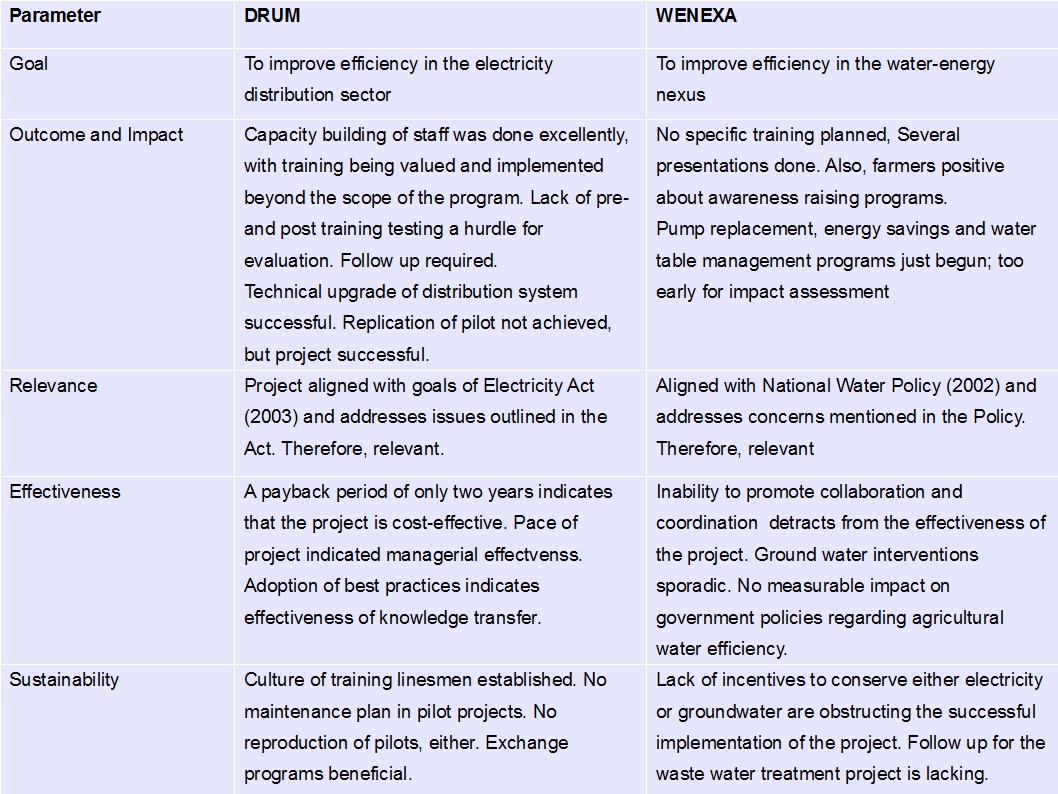1. Background
In 2004, DRUM was initiated with the following goals:
- Establish the framework, institutional capacity, and project development functions at the central and state levels; and
- Enable implementation of several full-scale, commercially replicable distribution initiatives in key reform states in India.
This involved training of employees of the distribution sector and demonstration projects for technical and managerial updates. The DRUM pilot projects were carried out in Doddaballapur, Bangalore; Umreth, Gujarat; and Aurangabad, Maharashtra.
WENEXA, also started in 2004, is a complex, decade-long program that addresses various components of what is termed the 'water-energy nexus'. These include:
- Replacing energy-inefficient water pumps with efficient ones
- Watershed management and water table replenishment in Doddaballapur
- Urban wastewater treatment in Nagpur.
2. Purpose of evaluation
The three primary goals of this evaluation were:
- Measuring the results
- Determining impact
- Determining the strategy of future energy-water programs
3. Research design and evaluation methodology
This evaluation uses a combination of quantitative and qualitative measures to determine 'effectiveness, relevance and efficiency'. The following methods were used:
- Project documents, policy papers, records etdc
- Semi-structured interviews with various participants in the project
- Survey of past DRUM trainees
- Personal interviews with farmers
- Focus group discussion
- Site visits
4. Findings
In addition to the observations detailed above, it was also observed that the programs did not focus on gender. The report mentions ways in which this could have been done.
5. Conclusions
The DRUM project needs to focus on replicability of the pilots implemented. In addition to training, this replicability depends on the committment of the people involved. WENEXA needs to focus on integration of water and energy, rather than addressing these as separate issues.
6. Recommendations
The report ends with a set of recommendations for the projects, as well as for strategizing future interventions. Key among these are a focus on measuring the outcome of training in terms of knowledge applied, setting systems to share knowledge, insist on adequate baseline studies before implementation of measures.
8. Lessons learnt
These include the importance of mid-term reviews, communication to ensure scalability, and continued training.
Download the entire report here.













